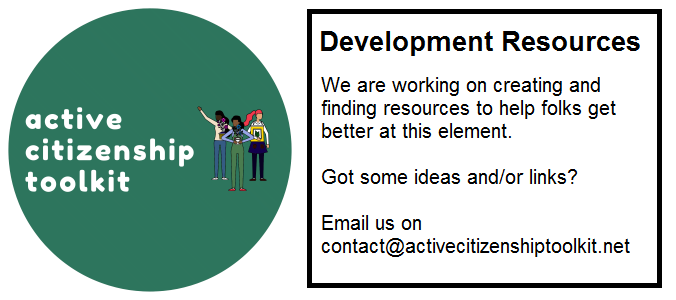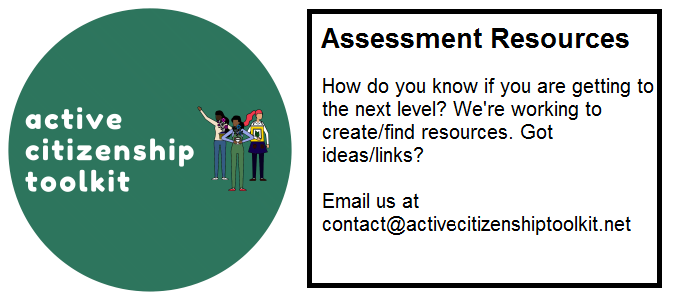Element Descriptor
There’s no simple map for figuring out which systems of injustice will play out in which order in which ways. Sexism, racism, ableism, classism and other categorisations will have different kaleidoscopic outcomes. This, in essence, is the idea of intersectionality (and yes, there is such a thing as intersectional environmentalism). If you don’t get this, you simply can’t do good allyship, and you’ll be bewildered and ineffective in rapidly changing situations.
Level descriptors
| Novice | Practitioner | Expert | Ninja |
|---|---|---|---|
| You have a basic understanding of what intersectionality is, and can explain, with time to prepare, to a sympathetic if uninformed person how ‘it’ works – that there are no exact formulae for explaining which kinds of oppression/discrimination take precedence at any given time, and how that will shift and have implications over time | You have read articles and blog posts on intersectionality and you are explain the concept with ease, and expand on how different layers of oppression (gender, race, ability, etc) overlap. you are also able to confidently answer questions from people who are unfamiliar with the concept | You have a comprehensive understanding of intersectionality and its importance to social movements. you are able to write, speak and discuss about intersectionality at length, and you are up to date with emerging literature on intersectionality. you have read academic literature by feminist scholars and are able to recommend prominent texts to those who want to explore the concept further. | Over and above the expert level, you are well-versed with history and emergence of the concept, as well as its significance in social movements over time. Oh and Kimberlé Williams Crenshaw probably follows you on Twitter |
Element Overview Essay
This is a draft. If something doesn’t make sense, or you see typos, or if you have further ideas, please email us on contact@activecitizenshiptoolkit.net
Again, I am alive to the ironies of a white able bodied hetero middle class male from the minority world with other events privileges, doing the first draft of something about understanding intersectionality but here we are.
So, the causes of not understanding intersection So, intersectionality is the concept that oppressions are interrelated and so, the oppression of a rich white man who happens to be gay in a mildly or largely homophobic society is different from the oppression faced by a black working class, lesbian living next to a chemical factory because that’s the only rent that she can afford.
And intersectionality asks you to do some assessing about how these play in how these different forms of oppression and divisions mix with each other and sometimes might cancel each other out, or have overpowering the other. And other times they amplify each other. And it’s it’s mushy it’s it’s it’s not clear cut, there’s not a linear progression. You can’t hand out medals in the “Oppression Olympics” based on simply demographics.
So that brings us to the reasons that you don’t see it is- it’s quite a cognitive load. But if you don’t understand how these things play together to come to consequences, then you’ll be endlessly confused and you’ll be a shit ally, or will do allyship in shit ways.
So as with the other forms of oppression, there’s a large job of work to be done here, around educating yourself and each other, not expecting people on the pointy end of the various isms (capitalism, Imperialism, racism) and phobias. to do the educating for you: that’s on you. It’s going to need tenacity. It’s going to need humility, it’s going to need intellectual courage.
It’s also going to need you to accept the fact that there is no one right answer. there is no shopping list of behaviours.
And sometimes various people of good faith from different strands will legitimately disagree with each other and that you can’t please everyone all the time, and that you do actually have to stand up and say “I disagree” and treat other people as adults who can hopefully cope with that.
Reading
June Jordan 1982 Report from the Bahamas
https://www.jstor.org/stable/40338566?seq=1
Alison Phipps Not Me Too
Development Resources

Assessment Resources

